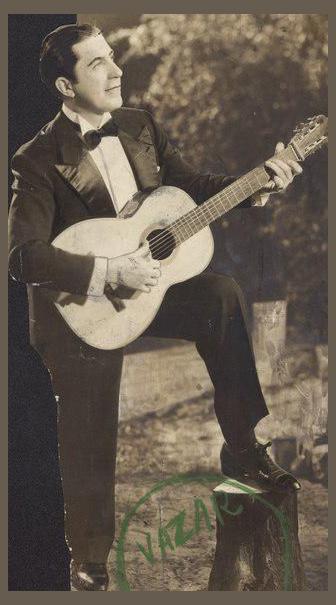 Carlos Gardel
Carlos Gardel
Carlos Gardel: The Legendary Tango Maestro
Early Life and Influences
Carlos Gardel, born Charles Romuald Gardés in 1890, was an enigmatic figure shrouded in mystery. His early years in Toulouse, France, were marked by poverty and obscurity. As a young man, he immersed himself in the Parisian cabaret scene, where he honed his musical skills and developed a unique style that would later define tango.
Rise to Fame
In the early 1910s, Gardel returned to Buenos Aires, Argentina, where he found success as a singer and guitarist. He collaborated with lyricist Alfredo Le Pera, and together they created some of the most iconic tango songs of all time, including the haunting "Por Una Cabeza." Gardel's deep, resonant voice and expressive phrasing captivated audiences around the world.
International Acclaim
Gardel's fame extended beyond Latin America. In the 1930s, he embarked on a series of tours to Europe and the United States, where he introduced tango to new audiences. He performed at prestigious venues such as the Folies Bergère in Paris and Carnegie Hall in New York City.
Challenges and Controversies
Despite his international success, Gardel faced numerous challenges. His true birthplace and family lineage remained a subject of controversy, leading to speculation and unsubstantiated claims. He also encountered resistance from some traditional tango musicians who viewed his style as too commercial.
Tragic End
On June 24, 1935, Gardel's life was cut short in a plane crash in Medellín, Colombia. The accident sent shockwaves through the music world and plunged Argentina into mourning. His death marked the end of an era in tango and left an enduring legacy that continues to inspire musicians and fans alike.
Discography
Gardel's extensive discography includes over 900 recordings, many of which have become timeless classics. Some of his most notable albums include:
* Gardel en el Luna Park (1929)
* Gardel Sings Tango (1930)
* Gardel and Le Pera (1933)
* The Complete Carlos Gardel (1994)
Members
The members of Carlos Gardel's orchestra included:
* Carlos Gardel (vocals, guitar)
* Guillermo Barbieri (piano)
* Julio de Caro (violin)
* Francisco Canaro (bandoneon)
* Enrique Maciel (flute)
* José María Aguilar (cello)
Early Life and Influences
Carlos Gardel, born Charles Romuald Gardés in 1890, was an enigmatic figure shrouded in mystery. His early years in Toulouse, France, were marked by poverty and obscurity. As a young man, he immersed himself in the Parisian cabaret scene, where he honed his musical skills and developed a unique style that would later define tango.
Rise to Fame
In the early 1910s, Gardel returned to Buenos Aires, Argentina, where he found success as a singer and guitarist. He collaborated with lyricist Alfredo Le Pera, and together they created some of the most iconic tango songs of all time, including the haunting "Por Una Cabeza." Gardel's deep, resonant voice and expressive phrasing captivated audiences around the world.
International Acclaim
Gardel's fame extended beyond Latin America. In the 1930s, he embarked on a series of tours to Europe and the United States, where he introduced tango to new audiences. He performed at prestigious venues such as the Folies Bergère in Paris and Carnegie Hall in New York City.
Challenges and Controversies
Despite his international success, Gardel faced numerous challenges. His true birthplace and family lineage remained a subject of controversy, leading to speculation and unsubstantiated claims. He also encountered resistance from some traditional tango musicians who viewed his style as too commercial.
Tragic End
On June 24, 1935, Gardel's life was cut short in a plane crash in Medellín, Colombia. The accident sent shockwaves through the music world and plunged Argentina into mourning. His death marked the end of an era in tango and left an enduring legacy that continues to inspire musicians and fans alike.
Discography
Gardel's extensive discography includes over 900 recordings, many of which have become timeless classics. Some of his most notable albums include:
* Gardel en el Luna Park (1929)
* Gardel Sings Tango (1930)
* Gardel and Le Pera (1933)
* The Complete Carlos Gardel (1994)
Members
The members of Carlos Gardel's orchestra included:
* Carlos Gardel (vocals, guitar)
* Guillermo Barbieri (piano)
* Julio de Caro (violin)
* Francisco Canaro (bandoneon)
* Enrique Maciel (flute)
* José María Aguilar (cello)